5 takeaways on McCarthy’s exit from Congress
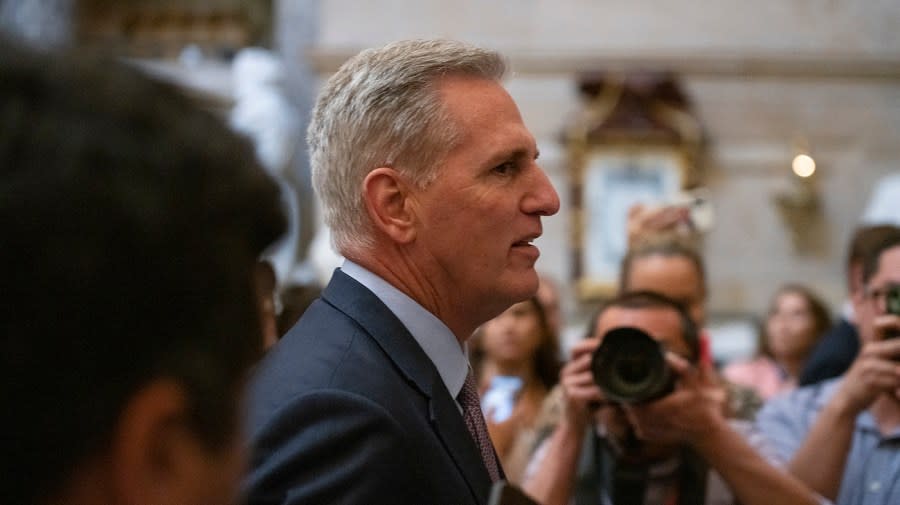
- Oops!Something went wrong.Please try again later.
- Oops!Something went wrong.Please try again later.
Former Speaker Kevin McCarthy’s (R-Calif.) announcement that he is leaving Congress didn’t come as a shock — but his departure will have ripple effects for the House and the Republican conference.
McCarthy is departing after a 17 year run in the House that took him to the highest levels of congressional power — only to be toppled by a group of Republican rabble-rousers, leaving him without a defined place in the GOP conference and at odds with the conservatives who spearheaded his ejection.
Still, his departure marks a significant moment for the House GOP conference — of which McCarthy has been a key figure for years during his rise through the leadership ranks — and spells trouble ahead for the razor-thin GOP majority.
Here are five takeaways on McCarthy’s exit from Congress.
End of “Young Guns” era
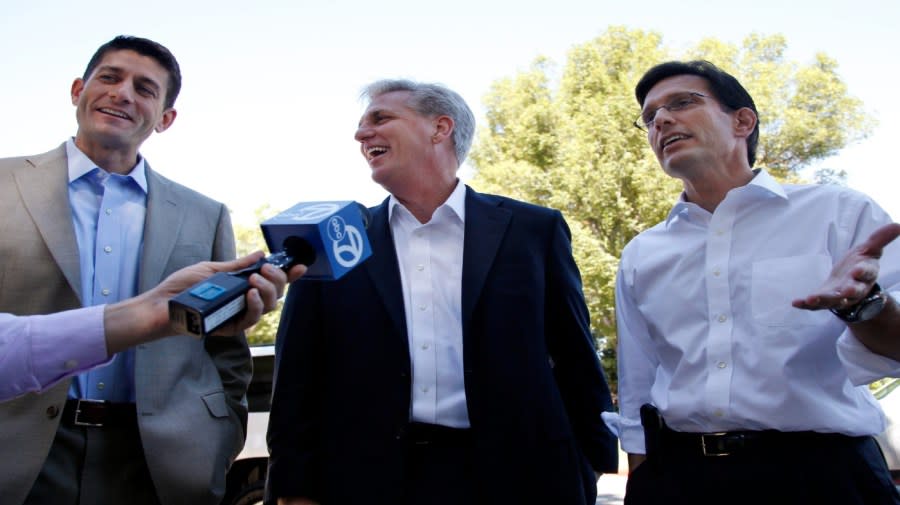
McCarthy’s exit from Congress means all three “Young Guns” are officially on the bench.
McCarthy teamed up with Reps. Paul Ryan (R-Wis.) and Eric Cantor (R-Va.) after starting his congressional tenure in 2007, establishing a trio of rising Republicans looking to shake up the status quo in the GOP.
The group — which published a book in 2010 titled “Young Guns” — sought to bring the party back to its conservative foundation, with an eye towards economic freedom and limited government, after growing annoyed with ethics scandals of past years and the surge in government spending under the George W. Bush administration.
They recruited hard-line conservatives, which helped shepherd in the House GOP’s 2010 victory, flipping the chamber in their control after four years in the minority.
But some of those recruits came back to haunt them. Taking a more hard-line conservative perspective — in line with the anti-establishment Tea Party — the new lawmakers looked to knock out the Young Guns when they sought leadership positions themselves.
The trio eventually fell one by one. Cantor, who was the majority leader at the time, lost his primary bid for reelection in 2014 against conservative former Rep. Dave Brat (Va.). Ryan, as Speaker, announced his retirement in 2019 after being squeezed by his right flank. And now McCarthy, the former Speaker deposed in embarrassing fashion by Democrats and a band of eight Republicans, says he is calling it quits.
Narrowing House GOP majority places more pressure on Johnson
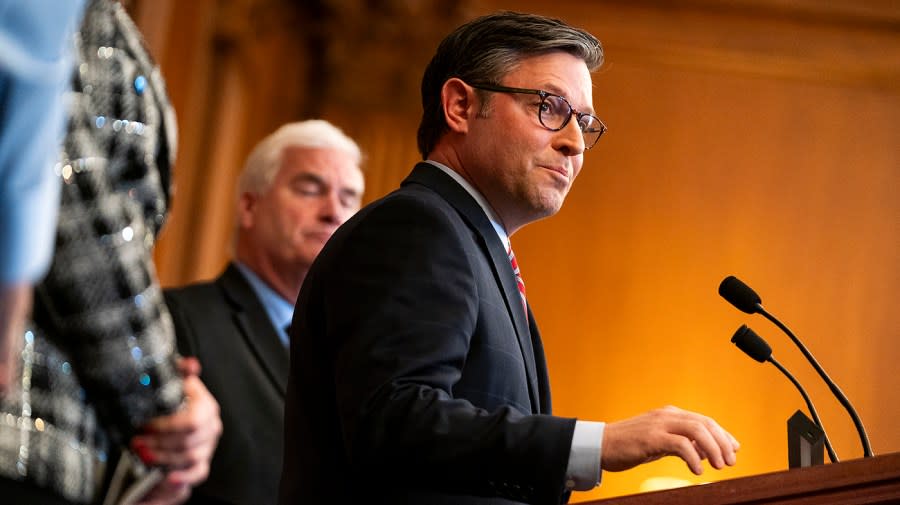
McCarthy’s resignation further slims the already narrow House GOP majority, an ominous sign for Speaker Mike Johnson (R-La.) as the chamber barrels towards a series of high-stakes legislative fights.
With McCarthy gone, and former Rep. George Santos (R-N.Y.) expelled, the makeup of the House will be 220 Republicans to 213 Democrats, meaning Republicans will only be able to lose three votes on any party-line bill, assuming all members are in attendance.
That margin wouldn’t change were McCarthy to remain in Congress. But the landscape could get worse for Republicans in the months to come.
Voters in New York’s 3rd Congressional District are scheduled to select a Santos replacement on Feb. 13, and the area could flip to Democratic control. The district broke for President Biden in the 2020 election by roughly 8 percentage points, and the nonpartisan Cook Political Report rated the special election a “toss-up.”
If Santos’s seat flips blue with McCarthy gone, Republicans would only be able to lose two votes on any party-line referendum.
There are also some wildcards in the House math conundrum. Rep. Brian Higgins (D-N.Y.) is set to retire in February to run Shea’s Performing Arts Center, and Rep. Bill Johnson (R-Ohio) said he plans to leave before mid-March to become president of Youngstown State University, two resignations that could end up being a wash for both parties. Additionally, Rep. Sheila Jackson Lee (D-Texas) is in a runoff election Saturday for Houston mayor.
Reopened motion to vacate wounds
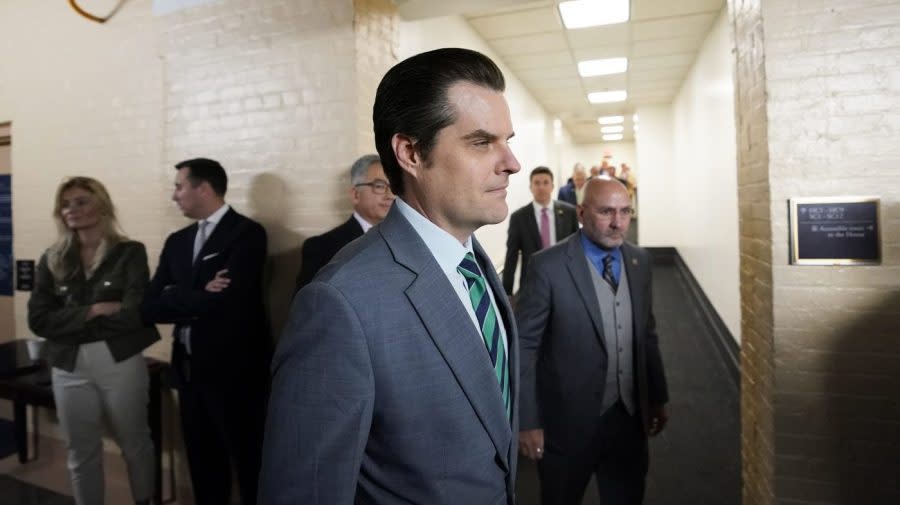
McCarthy’s announcement quickly reopened wounds from October’s motion to vacate vote, which ended the California Republican’s run as Speaker — and laid the foundation for his impending departure.
The eight Republicans who voted to oust McCarthy — led by Rep. Matt Gaetz (R-Fla.) — took a ton of conservative heat after the GOP leader’s historic ejection, receiving sharp criticism and insults from their colleagues on the right.
With McCarthy now headed for the exits, those raw feelings are rising back to the surface.
While commenting on the narrowing House GOP majority, Rep. Derrick Van Orden (R-Wis.) pinned the blame on Gaetz, writing on X, the platform formerly known as Twitter, that the dynamics in the chamber were “a direct result of @RepMattGaetz inability to think further into the future than a tweet.”
Gaetz, however, is shielding himself from the blame: “434 members are willing to serve in the House without being Speaker. It’s my fault Kevin isn’t one of them?” he responded to Van Orden in a post on X.
Rep. Marjorie Taylor Greene (R-Ga.) also aimed her fire at the members who deposed McCarthy and voted to oust Santos in a post on X: “Congratulations Freedom Caucus for one and 105 Rep who expel our own for the other. I can assure you Republican voters didn’t give us the majority to crash the ship. Hopefully no one dies.”
Shift in the GOP
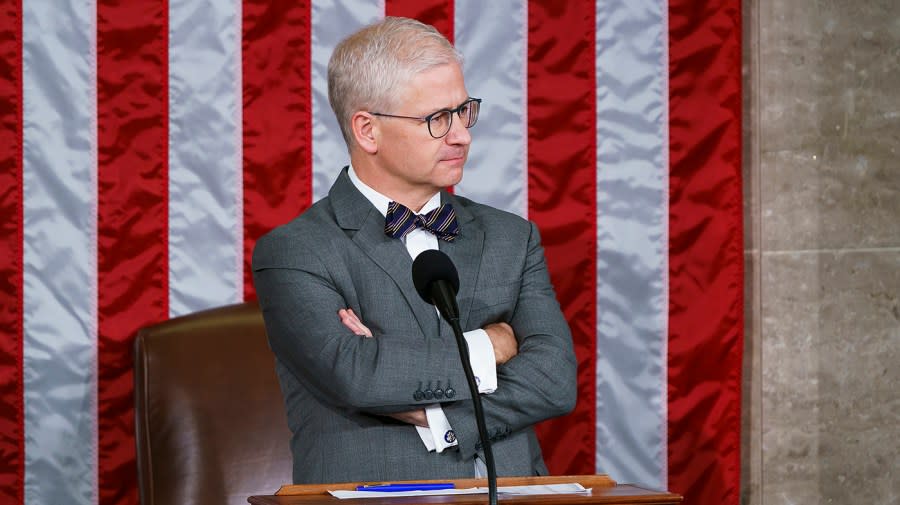
McCarthy is the latest in a growing list of House GOP veterans running for the exits, a trend that highlights the shift in the Republican Party from the traditional, Chamber of Commerce conservatism that defined the GOP in previous decades to the America-first dogma ushered in by the Tea Party movement and accelerated under former President Trump.
McCarthy is resigning by the end of the year, marking the third straight House GOP leader nudged into early retirement by right-wing agitators over the last decade. And Reps. Patrick McHenry (R-N.C.), the chairman of the Financial Services Committee, and Kay Granger (R-Texas), the chairwoman of the Appropriations Committee, have both said they will not run for reelection next year, depriving the House of roughly 60 years of combined experience when including McCarthy.
As longtime House lawmakers flee the Capitol, more firebrand conservatives are taking their spots — and, with that, changing the disposition of the House GOP conference.
The conference, for example, has grown more isolationist on foreign policy issues — the matter of Ukraine, for one — and has used hard-line tactics more often to push for various demands, like leveraging shutdowns for spending cuts.
Gaetz, a close ally of Trump and a rabble-rouser in the House GOP conference, said he hopes the “Establishment Exodus” leads to the arrival of a new crop of firebrand conservatives willing to adopt his take-no-prisoners tactics.
“There’s an Establishment Exodus from the House Republican Conference. It’s my hope that we backfill these establishment entities with folks who are willing to fight for the America First agenda,” he wrote on X in response to McCarthy’s resignation announcement.
Replacing McCarthy in California; what’s next for the former Speaker?
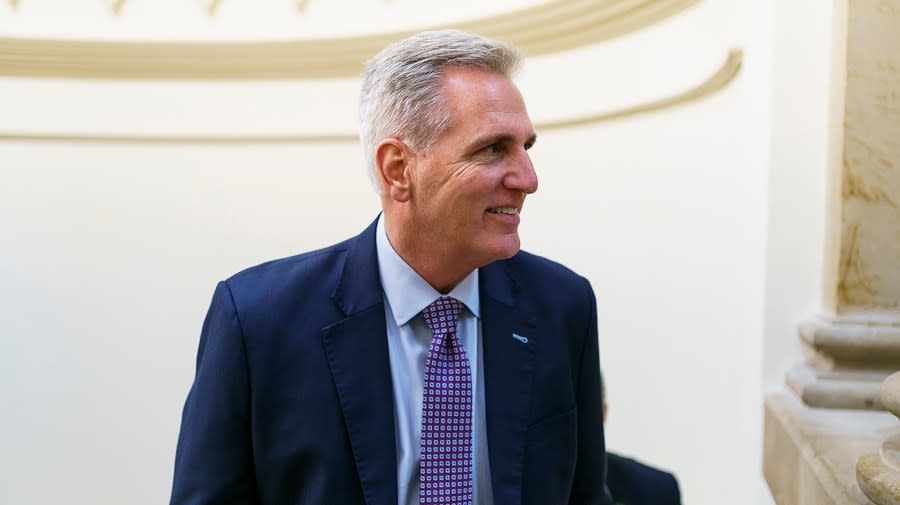
Once McCarthy officially retires from Congress — he said he will leave at the end of this year — California Gov. Gavin Newsom (D) will have 14 days to set a special election, according to state law. That election would have to take place between 126 and 140 days later.
If McCarthy, however, happens to resign after Jan. 3, 2024, Newsom would have the option of calling a special election, or waiting until the November general election to fill the seat permanently.
Regardless, California’s 20th Congressional District is expected to remain red: The area broke for former President Trump over President Biden by roughly 24 percentage points in 2020.
But if Newsom, a Democrat, opts to leave the seat empty for a year, it could have further implications for the GOP’s majority.
As for McCarthy, the former Speaker says he will not be leaving politics despite departing the House. In a Wall Street Journal opinion piece, which broke the news of his resignation, McCarthy said, “I know my work is only getting started.”
“I will continue to recruit our country’s best and brightest to run for elected office. The Republican Party is expanding every day, and I am committed to lending my experience to support the next generation of leaders,” he added.
For the latest news, weather, sports, and streaming video, head to The Hill.

